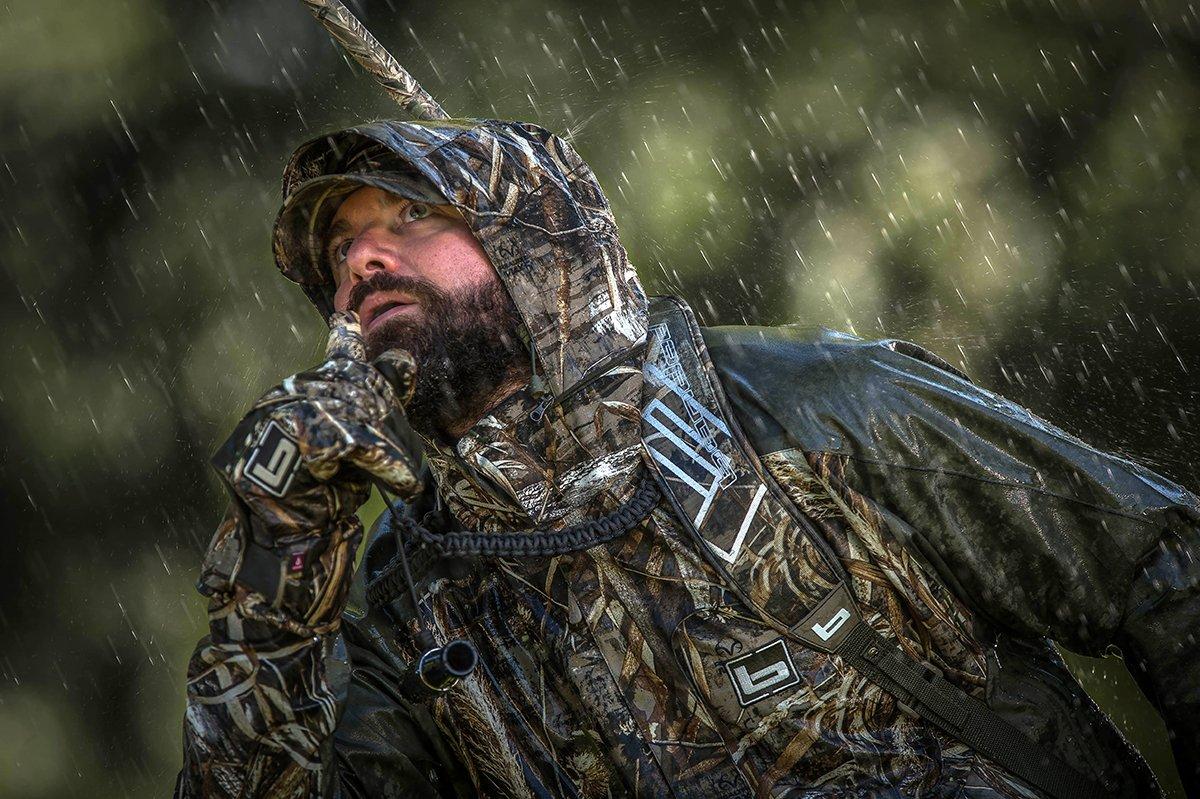Overabundant water changes the game — sometimes for the better
Capt. Obvious might point out that ducks need water. Likewise, duck hunters depend on water. Some years, however, Mother Nature's faucet never turns off, inundating the landscape with too much precipitation. And that can create headaches.
Overabundant water spreads birds out, letting them use secluded, unpressured spots to feed, loaf or roost. When that occurs, hunting at traditional water hotspots — lakes, flowages, rivers, potholes and marshes — can get tough. With plenty of options, ducks and geese don't have to use permanent water and run a gauntlet of guns every day of the season.
That changes the game, but veteran hunters know it doesn't guarantee failure. In fact, wet years can be downright interesting.
Seeking New Stuff
Soggy conditions create new hunting areas, including sheet water, temporary sloughs, flooded pastures, newly created backwaters and — the holy grail of wet autumns — flooded crop fields. The first challenge is locating those spots. That's easy if you drive past a flooded bean field next to the highway, but many temporary wetlands are secluded or even hidden, making the task much more difficult.
Don't wait until the forecast calls for rain. Identify potential wet-year hotspots during the off-season by studying online or topographical maps, or even running your duck boat during spring flooding to see where water collects. Look for low spots in fields, sedge meadows near streams, woods next to rivers, creeks that could spill over their banks, small sloughs or marshes that might expand considerably during rainy spells, and similar spots. Focus on spots where water might flood food, such as acorns, grass, alfalfa or especially agricultural crops.
Then, if conditions get wet during fall and winter, monitor likely areas to see if they're holding water and birds. Check them often, too, as water levels and waterfowl usage can change quickly — even in a day. One October in South Dakota, some friends and I drove past a nondescript pasture enrolled in the state's walk-in hunting program. It held nothing but grass and old wire during the first week of our trip. But when a storm dumped several inches of rain on the area for two days, the pasture transformed overnight into a temporary wetland loaded with ducks. A miserably wet hunt during our final day netted 18 ducks and a reminder about how quickly conditions can change.
Getting There, Getting it Done
Accessing newly flooded areas can be challenging. Sometimes, you get lucky, as my buddies and I did by spotting that walk-in pasture near a gravel road. But often, property lines or the soggy landscape can make it difficult to reach fresh hotspots. Boats or other watercraft provide the best option, as they let you access backwaters, flooded fields or temporary marshes off of permanent waterways. Just keep safety first if you're navigating rivers or streams during near-flood conditions. Also, know the access laws of the state you're hunting.
If a boat, canoe or skiff isn't an option, you might have to slog through muck, flooded grass or waist-deep water to reach a spot. Use a sled or cart to make decoy transportation easier. Also, consider bringing a walking staff or similar support to help with balance and safety on tricky footing.
Hunting tactics at freshly flooded areas can vary considerably. Basically, let the situation dictate your setup and decoy rig. If you're hunting a flooded cornfield that's holding 500 honkers and mallards, you obviously want a large spread. But if you're slipping into a new pothole where you saw a dozen woodies the previous day, you can get away with a handful of dekes. Identify and analyze the situation as you would with any waterfowling scenario.
Don't Fret Wet Years
When the heavens open up, prepare for adventures at new spots. That might require some — OK, a lot — of work, but the results can be epic. You can return to your regular waterfowling program and traditional areas during normal seasons. When water rules the landscape, embrace the challenge.
Click here for more Realtree waterfowl hunting content. And check us out on Facebook.







